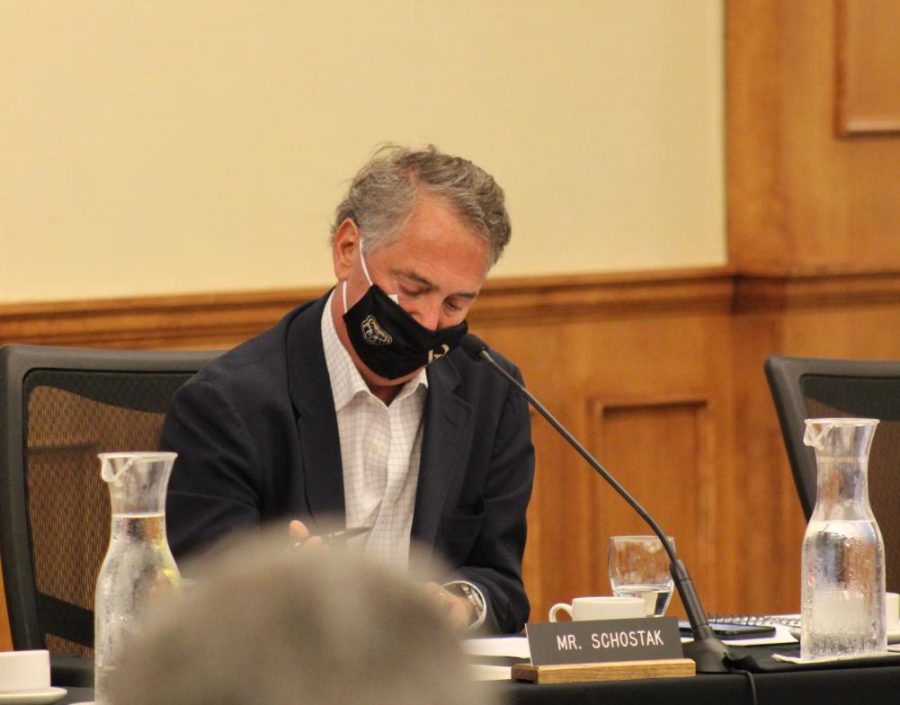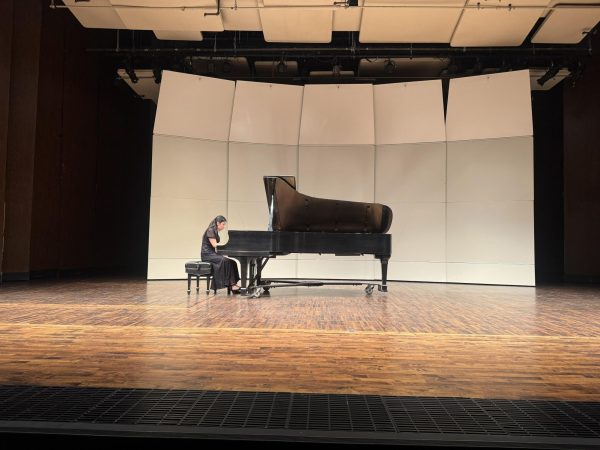OU’s Board of Trustees appointment process
Chair of the Board of Trustees Robert Schostak at the most recent board formal session on Aug.12, 2021.
The most recent appointment of new members to Oakland University’s Board of Trustees (BOT) came with Governor Gretchen Whitmer’s 2020 appointment of Trina Scott and Reverend Joseph Jones to the board. These two new members of the board replaced Marianne Fey and Richard DeVore, who had reached the end of their eight year gubernatorial appointment.
OU’s BOT is an eight-person governing body that directs the spending of OU’s funds and acts as a general oversight body for the university. In addition to guiding the university’s direction and spending, this governing body also appoints the university’s president.
Article VII of the 1963 Constitution of the State of Michigan established the precedent for the existence of a BOT for a public college in OU’s situation and set fundamental guidelines for the duties and responsibilities of the board. Established in 1957, OU is covered by this part of the state Constitution. However, OU is not explicitly named with its governing board’s nature explained — as is the case for the University of Michigan (U-M), Wayne State University (WSU) and Michigan State University (MSU) — likely due to OU’s small size at the time.
Section six of Article VII of the Constitution establishes a “board of control” for each individual higher education institution outside of the three aforementioned colleges. This method of governance centers on the appointment of BOT members by the Governor of Michigan as allowed by the state Senate, which contrasts with the provisions for other colleges whose boards are elected by popular election.
The difference between having a BOT that is gubernatorial appointed and one that is popularly elected is quite meaningful when holding such governing bodies accountable. In response to the poor handling of the Larry Nassar sex abuse scandal by MSU’s BOT in 2018, State Representative James Lower had proposed a bill that would change the method of selection for MSU, WSU and U-M’s BOT from popular election to appointment by the governor as authorized by the state Senate.
Colleges such as MSU — and those others explicitly stated in Article VII of the Michigan constitution — had the candidates for their BOT selected by political parties prior to the proper election. According to Michigan Radio, Michigan is the only state in the United States that utilizes popular elections to select members of the BOT for public universities. This method of popular election is actually not recommended by the American Council of Trustees and Alumni, which argues that gubernatorial appointment for the BOT forces candidates to be selected for their tangible skills and benefits that will be brought to their governing position with whatever university that they will serve.
In contrast to simply being charismatic and skilled at winning elections, appointments from the governor’s office will need to have a marked benefit that is brought to the board of their prospective school to have a genuine chance of being selected by the governor. However, critics of the gubernatorial method assert that executive control allows the governor to reward political allies or financial donors with board positions.
In OU’s case, the governor appoints the members of the BOT. From that, there is a clear line of responsibility to the governor and a clearer image of what political actions lead to the appointment of board members than with a popular election.





